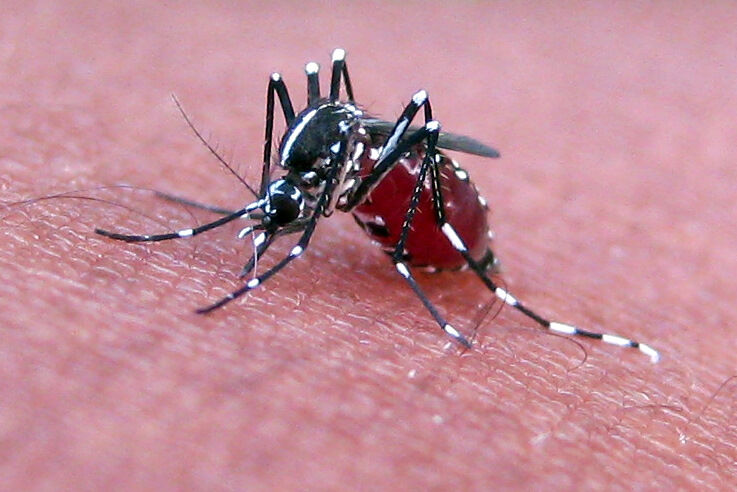On Aug. 18, 2020, the FDA approved the release of 750 million genetically modified Aedes aegypti mosquitoes in Florida as an experimental pest management strategy. These genetically modified mosquitoes, named OX513A, are all males. When they mate with wild females, the resulting offspring carry a genetic trait that prevents them from reaching maturity and beginning to bite humans. By producing critically defective offspring, OX513A acts as a biological pesticide to limit populations of wild mosquitoes that transmit diseases like malaria, yellow fever, dengue and the zika virus.
This experiment began in 2012 when the UK-based biotechnology company Oxitec contacted the Florida Keys Mosquito Control District (FKMCD) with information about their laboratory mosquitos. Oxitec had run successful trials of OX513A in Malaysia and the Cayman Islands, where the number of pest mosquitoes had decreased without harming the ecosystem.
If given permission to release them in the United States, Oxitec believed that successful trials under strict U.S. regulations would give their new biotechnology the credibility it needed to push for larger-scale implementation. Permission was granted in August, and the release in Florida is scheduled for 2021.
While the mosquito control directors and many citizens are in support of this trial as a possible solution to the pest problem, human manipulation of an animal species is being met with controversy and skepticism by others.
Jaydee Hanson, Policy Director for the International Center for Technology Assessment and Center for Food Safety, calls the trial a “Jurassic Park experiment,” taking tax dollars that could be spent addressing climate change or the COVID-19 pandemic response measures. This comment addresses both economic and ethical concerns surrounding the project: some believe that scientists are trying to “play God” with these types of experiments.
Other Floridians are unsatisfied with the data from Oxitec’s previous tests with their mosquitoes and worry that the genetically modified and natural pests will create hybrid offspring that are resistant to other pest control efforts.
While some policymakers and citizens worry about the potential negative consequences of releasing OX513A, Oxitec and the FKMCD defend the release by pointing out the successful trials they’ve had elsewhere, such as in the Brazilian city of Indaiatuba. There, 95% of the native Aedes aegypti population was suppressed 13 weeks after introducing OX513A.
If subsequent trials show that same rate of success, these genetically modified mosquitoes could be a safe, inexpensive way to control disease-spreading mosquito populations without harming the natural environment with harsh chemicals like DDT.















